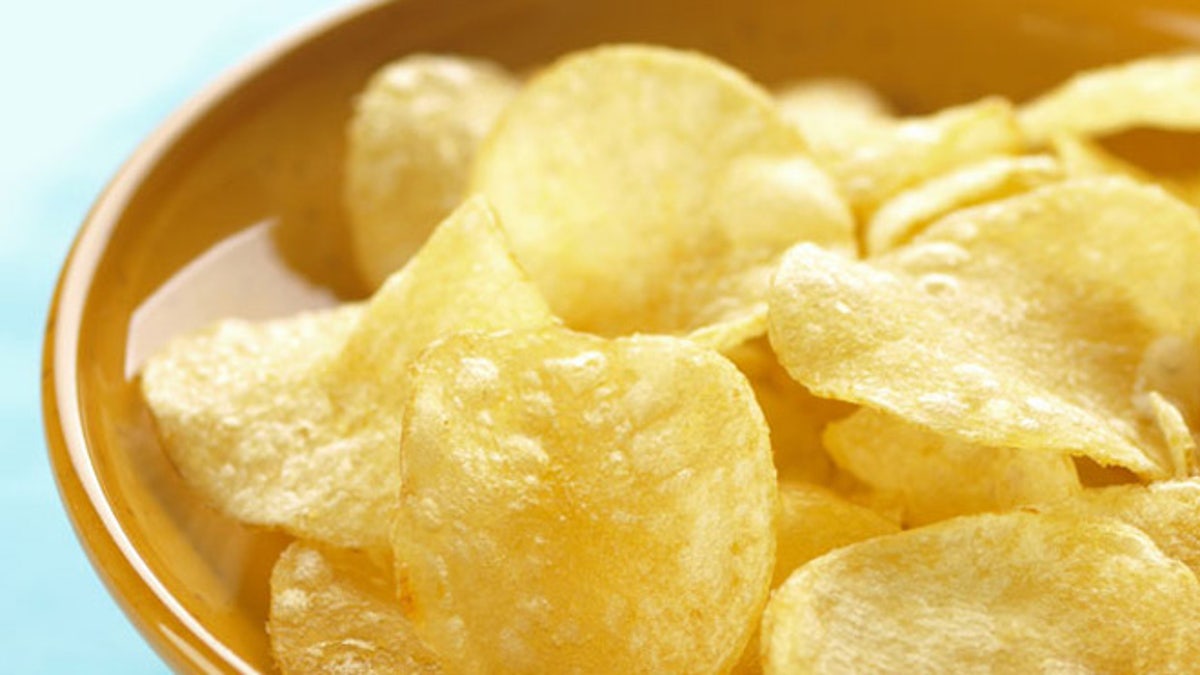
When your stress levels skyrocket, your urge to snack spikes, too.
In fact, 61 percent of men admit to turning to salty snacks when the pressure hits, a new Mintel report found.
So why do we want something salty instead of something sweet or savory?
There might be a physiological reason why you reach for the Doritos to snack on instead of that candy bar when your stress levels are rising.
In fact, animal research from the University of Florida suggests that consuming salt can actually decrease the amount of stress hormones like cortisol that are released during psychological stress.
And it’s likely that a similar effect takes place in humans, too, said one of the lead researchers Eric Krause, Ph.D.
Related: How to De-Stress In Under 2 Minutes
You don’t need a lot of the salty stuff for this to happen, either: Raising your body’s sodium levels by just 1 to 2 percent is enough to suppress the production of your stress hormones, he says.
A personal-sized bag of potato chips might be enough to get you to that level, Krause explained.
What’s more, Krause and other researchers have found that the body’s oxytocin levels—a feel-good hormone associated with pleasure and comfort—increase when salt levels increase, too.
Go ahead and grab a small salty snack next time you’re stressed, but watch your portions: Many salty options, like chips and fries, tend to be high in fat and calories.
Related: 4 Snacks You Can Actually Binge Eat
If you want to watch your waistline, reach for nuts to satisfy the need for salt and crunch, said Men’s Health weight loss advisor Alan Aragon, M.S.
They’re full of healthy fats, which have been shown to lower cholesterol and reduce the risk for heart disease.
You can also sprinkle some sea salt on slices of cucumber, carrots, or tomatoes to get a salty, crunchy fix without worrying about your waistline.
Related: 7 Healthy Snacks That Suppress Your Appetite
Just keep your total sodium intake to less than 2,300 milligrams (mg) a day, according to the 2015-2020 Dietary Guidelines for Americans.
And if you have high blood pressure, you’ll want to keep it lower—you shouldn’t exceed 1,500 mg then.
